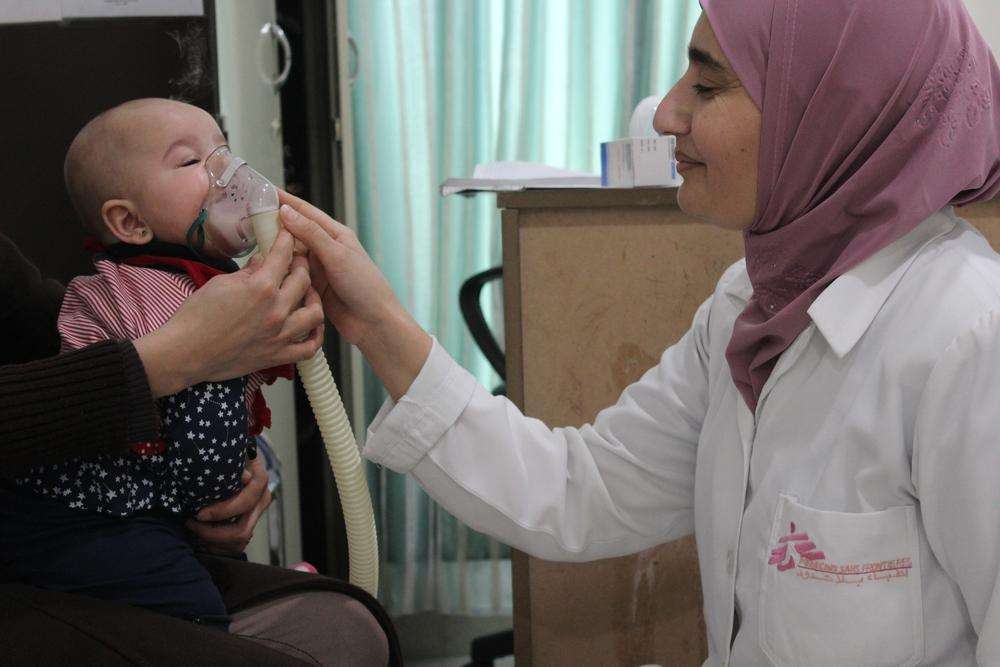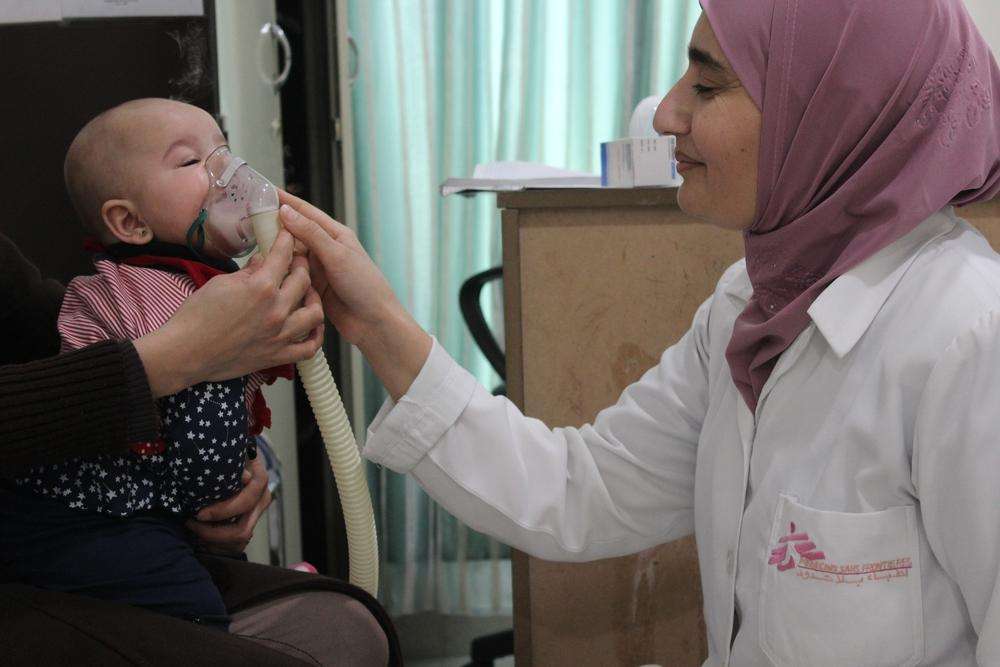The Doctors Without Borders/Médecins Sans Frontières (MSF) mother and child project in Irbid, northern Jordan, has been augmented to perform complicated deliveries, including Caesarean sections, and provide improved neonatal care to Syrian refugees in the region. Though unofficial figures are much higher, as of May 6 the United Nations High Commission for Refugees (UNHCR) had an active registered caseload in Jordan of 627,287 Syrian refugees, of whom 163,156 (26 percent) were taking refuge in Irbid, Jerash, Mafraq, and Ajloun.
Refugees in these areas seek health care for themselves and their children at the MSF hospital in Irbid. Since the project opened in October 2013, MSF has provided more than 20,991 obstetrics/gynecology consultations, 18,082 pediatric consultations, 3,089 deliveries, and 389 neonatology admissions.
Increasing Needs
The project has become even more important as more refugees arrive, placing ever more pressure on Jordan’s health system. What's more, in November 2014, the Jordanian authorities’ announced that all Syrian refugees, registered or not, would have to pay for health care at Ministry of Health facilities.
“MSF has had to upgrade its activities in Irbid due to the changing needs, both in terms of the numbers of refugees needing care, as well as the types of cases we have been receiving,” said Jean-Baptiste Marion, project coordinator for MSF in Irbid. “We have been seeing more complicated deliveries and complicated cases in need of neonatal care, and so we had to adapt to meet these needs, and this involved moving the project to a new hospital facility.”
Work is also under way to develop an intensive care unit for newborns to provide CPAP (continuous positive airway pressure) respiratory care, which uses mild air pressure to keep airways open. This treatment will be provided to babies with breathing problems such as sleep apnea and respiratory disorders, and babies born with underdeveloped lungs.
Mental Health Care
In October 2014, MSF also launched a mental health support program to reach Syrian mothers and children in refugee communities in the north of Jordan.
“Although we are here in Jordan, which is a safe country, on quiet nights we can still sometimes hear the sounds of shelling and bombing in Dara’a which is near the Jordanian border,” said Om Mahmoud, a Syrian refugee who brought her children to be treated at the MSF hospital in Irbid. “My children often recall all the horrific memories and panic.”
“More than half of the children followed by the MSF mental health team in Irbid have witnessed one or more distress factors—the killing of a loved one, the destruction of a home, physical or psychological abuse,” said Marc Schakal, MSF head of mission in Jordan. “The mothers of these children are also being supported by MSF as they struggle to look after their children, in most cases alone, due to the death or absence of the father.”
“We are offering them a range of services—individual therapy, group therapy, dyadic therapy [a treatment method for families that helps children with symptoms of emotional disorders, including those related to complex trauma and attachment], group support, and parental guidance. Access to mother and child care, as well as mental health care, is very difficult for Syrian refugees here in Jordan, and we are trying to fill some of this gap which, but more needs to be done,” Schakal added.
Read More: "A Chance for Life" for Syrian Refugees in Jordan





